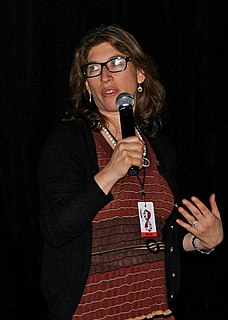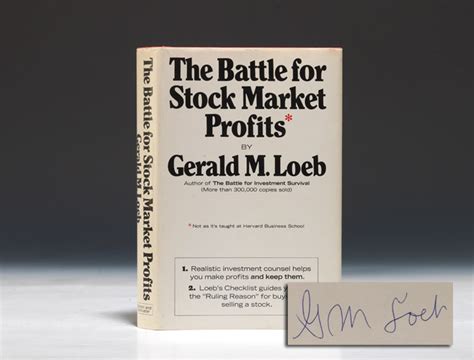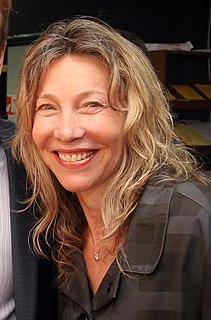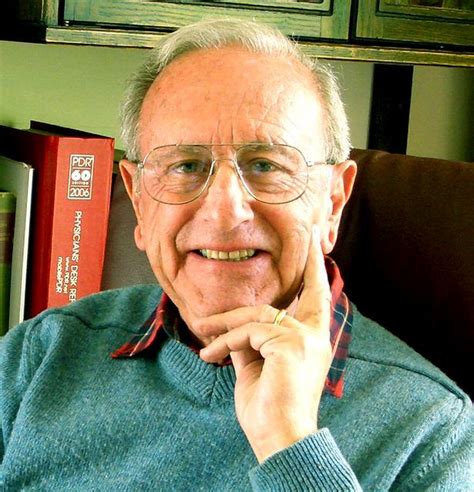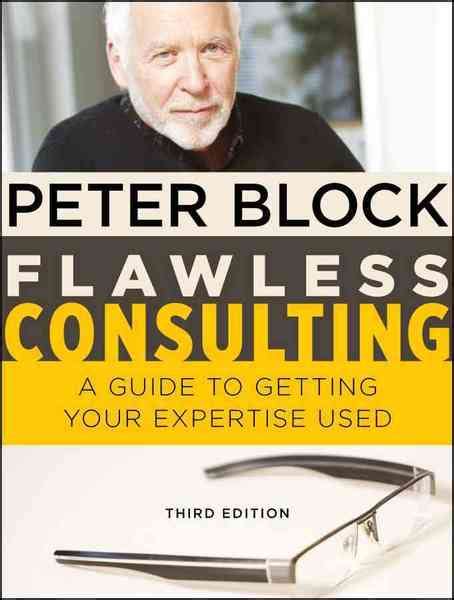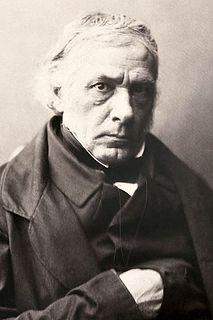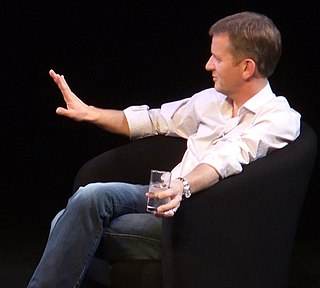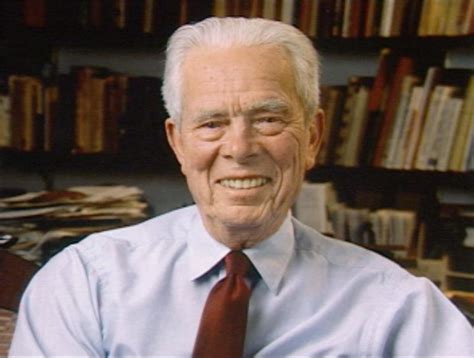Top 287 Economist Quotes & Sayings - Page 5
Explore popular Economist quotes.
Last updated on November 17, 2024.
I write with two things in mind. I want to be right with my fellow economists. After all, I've made my life as a professional economist, so I'm careful that my economics is as it should be. But I have long felt that there's no economic proposition that can't be stated in clear, accessible language. So I try to be right with my fellow economists, but I try to have an audience of any interested, intelligent person.
One of the most important skills of the economist, therefore, is that of simplification of the model. Two important methods of simplification have been developed by economists. One is the method of partial equilibrium analysis (or microeconomics), generally associated with the name of Alfred Marshall and the other is the method of aggregation (or macro-economics), associated with the name of John Maynard Keynes.
The economist Juliet Schor talks about how our reference group has changed over the last twenty-five years. As we spend less time with our neighbors, we're spending more time with people we know from TV and social media, and this becomes our new reference group. The media is full of images of people with wealth, and we're comparing ourselves to them and aspiring to what they have. Instead of keeping up with the Joneses family, we're trying to keep up with the Kardashians, even though it's completely unrealistic.
It [knowledge] is clearly related to information, which we can now measure; and an economist especially is tempted to regard knowledge as a kind of capital structure, corresponding to information as an income flow. Knowledge, that is to say, is some kind of improbable structure or stock made up essentially of patterns - that is, improbable arrangements, and the more improbable the arrangements, we might suppose, the more knowledge there is.
Economics, over the years, has become more and more abstract and divorced from events in the real world. Economists, by and large, do not study the workings of the actual economic system. They theorize about it. As Ely Devons, an English economist, once said in a meeting: 'If economists wanted to study the horse, they wouldn't go around and look at horses. They'd sit in their studies and say to themselves, `What would I do if I were a horse?' '
Love is the felt experience of connection to another being. An economist says 'more for you is less for me.' But the lover knows that more of you is more for me too. If you love somebody their happiness is your happiness. Their pain is your pain. Your sense of self expands to include other beings. This shift of consciousness is universal in everybody, 99% and 1%.
If you ask any economist, they'll tell you all the mortgage interest deduction does is raise the price of the house. So a couple is out looking at the house, they say, "Oh, we love this house, but we couldn't make the monthly payment." And the realtor says, "Yeah, but you're going to get a tax break." So people pay more than they would otherwise. You take a loss even though you're making a gain.
There is a myth that the New Deal programs on their own pulled the US out of the Great Depression and created the conditions for the economic boom after World War II. As an economist, I can tell you, that is not true. In reality, it was mainly World War II that launched the boom - the massive war mobilization, the horrifying destruction and death caused by it, and then the reconstruction in its aftermath. he US was the only advanced capitalist country that was not bombed during the war.
A good rule of thumb is as follows: If the numbers come from somebody wearing a tie (Wall Street economist or analyst, industry public relations department, captive think tank academic and so on), you ought to be very skeptical. By design messages from these people are intended to move markets, move merchandise and/or move public policy and are not a comment on the state of the physical universe.
If you go back to Adam Smith, you find the idea that markets and market forces operate as an invisible hand. This is the traditional laissez-faire market idea. But today, when economics is increasingly defined as the science of incentive, it becomes clear that the use of incentives involves quite active intervention, either by an economist or a policy maker, in using financial inducements to motivate behavior. In fact, so much though that we now almost take for granted that incentives are central to the subject of economics.
I once read about a meeting of economists who agreed that if their forecasts were 33 1/3 % correct, that was considered a high mark in their profession. Well, of course, I know you cannot invest in securities successfully with odds like that against you if you place dependence solely upon judgement as to the right securities to own and the right time or price to buy them. Then, too, I read somewhere about the man who described an economist as resembling ‘a professor of anatomy who was still a virgin.’
If God had perceived that our greatest need was economic, he would have sent an economist. If he had perceived that our greatest need was entertainment, he would have sent us a comedian or an artist. If God had perceived that our greatest need was political stability, he would have sent us a politician. If he had perceived that our greatest need was health, he would have sent us a doctor. But he perceived that our greatest need involved our sin, our alienation from him, our profound rebellion, our death; and he sent us a Savior.
The absurdity of public-choice theory is captured by Nobel Prize-winning economist Amartya Sen in the following little scenario: "Can you direct me to the railway station?" asks the stranger. "Certainly," says the local, pointing in the opposite direction, towards the post office, "and would you post this letter for me on your way?" "Certainly," says the stranger, resolving to open it to see if it contains anything worth stealing.
For complex reasons, our culture allows "economy" to mean only "money economy." It equates success and even goodness with monetary profit because it lacks any other standard of measurement. I am no economist, but I venture to suggest that one of the laws of such an economy is that a farmer is worth more dead than alive. A second law is that anything diseased is more profitable than anything that is healthy. What is wrong with us contributes more to the "gross national product" than what is right with us.
It's my belief that one of the unconscious reasons which underlies the odd attitude of the establishment toward hallucinogens is the fact that they bring the mystery to the surface as an individual experience. In other words, you do not understand the psychedelic experience by getting a report from Time magazine or even the Economist. You only understand the psychedelic experience by having it.
A lot of lies and misinformation has been put about by eco nuts on the back of a report by an idiot economist [Sir Nicholas Stern]. Environmental head bangers are talking nonsense when they claim that aviation is the fastest-growing source of carbon emissions. Coal-fired and oil-fired power stations are the biggest contributor of carbon but I have yet to hear any fearless eco warriors advocating nuclear power as they drive around in their SUVs to their next protest meeting.
In 1977, when I started my first job at the Federal Reserve Board as a staff economist in the Division of International Finance, it was an article of faith in central banking that secrecy about monetary policy decisions was the best policy: Central banks, as a rule, did not discuss these decisions, let alone their future policy intentions.
'Freakonomics' began with a 'N.Y. Times Magazine' profile I wrote about Steve Levitt. I was working on a book about 'the psychology of money,' and since Levitt's an economist, my editor thought I'd be the guy to write about him. Fact is that Levitt has almost no interest in either psychology or money.
The first proponent of cortical memory networks on a major scale was neither a neuroscientist nor a computer scientist but .. a Viennes economist: Friedrich von Hayek (1899-1992). A man of exceptionally broad knowledge and profound insight into the operation of complex systems, Hayek applied such insight with remarkable success to economics (Nobel Prize, 1974), sociology, political science, jurisprudence, evolutionary theory, psychology, and brain science (Hayek, 1952).
Moyo, a Zambia-born economist, asserts that aid is not only ineffective-it's harmful. Her argument packs a strong punch because she was born and raised in Africa. Moyo believes aid money promotes the corruption of governments and the dependence of citizens, and advocates that an investment approach will do more to help reduce poverty than aid ever could.
Why, when the economist gives advice to his society, is he so often cooly ignored? He never ceases to preach free trade, and protectionism is growing in the United States. He deplores the perverse effects of minimum wage laws, and the legal minimum is regularly raised each 3 or 5 years. He brands usury laws as a medieval superstition, but no state hurries to repeal its law.
The effort of the economist is to "see," to picture the interplay of economic elements. The more clearly cut these elements appear in his vision, the better; the more elements he can grasp and hold in his mind at once, the better. The economic world is a misty region. The first explorers used unaided vision. Mathematics is the lantern by which what before was dimly visible now looms up in firm, bold outlines. The old phantasmagoria disappear. We see better. We also see further.
A different set of incentives from rising in an economic establishment where the rewards system, again, the reinforcement, comes from being a truffle hound. That's what Jacob Viner, the great economist called it: the truffle hound - an animal so bred and trained for one narrow purpose that he wasn't much good at anything else, and that is the reward system in a lot of academic departments.
What makes a terrorist? Are the drivers primarily political or economic? Princeton economist Alan Krueger has made a great study of this question...What Makes a Terrorist lacks a question mark. That's because Krueger, marshaling persuasive statistics and analysis, comes down firmly on the side of politics, noting most terrorists are middle-class and well-educated.
Invitation is not only a step in bringing people together, it is also a fundamental way of being in a community. It manifests the willingness to live in a collaborative way. This means that a future can be created without having to force or sell it or barter for it. When we believe that barter or subtle coercion is necessary, we are operating out of a context of scarcity and self-interest, the core currencies of the economist.
We Americans commercialize everything. Look at what we did to Christmas. Christmas is Jesus' birthday. Now, I don't know Jesus, but from what I read he was the least materialistic person who ever walked the earth. No bling on Jesus. He kept a low profile and we turned his birthday into the most commercial day of the year. In fact we have a whole Jesus birthday season. And then at the end of it, we have the nerve to have an economist come on TV and say what a horrible Jesus birthday season we had.
All men have an equal right to the free development of their faculties ; they have an equal right to the impartial protection of that sovereign justice which is called the State ; but it is not true, it is against all tho laws of reason and equity, it is against the eternal nature of things, that the indolent man and the laborious man, the spendthrift and the economist, the imprudent and the wise, should obtain and enjoy an equal amount of goods.
An American economist of two generations ago, H. J. Davenport, who was the best friend Thorstein Veblen ever had (Veblen actually lived for a time in Davenport's coal cellar) once said: "There is no reason why theoretical economics should be a monopoly of the reactionaries." All my life I have tried to take this warning to heart, and I dare call it to your favorable attention.
I started by saying that one of the most fateful errors of our age is the belief that the problem of production has been solved. This illusion, I suggested, is mainly due to our inability to recognize that the modern industrial system, with all its intellectual sophistication, consumes the very basis on which is has been erected. To use the language of the economist, it lives on irreplaceable capital which it cheerfully treats as income.
When economist William Beveridge dreamed up the postwar welfare state he wanted to fight five 'giant evils' - want, disease, ignorance, squalor and idleness. Fast forward 65 years and it seems the last New Labour government grew an Unfair State that fuelled - not fought - one of those evils: idleness.
While I haven't read economist Robin Hahnel's work, replacing capitalism would be at the very bottom of my list of priorities - to be considered only after everything else had been tried. Improving our capitalistic system however, is at the top of my list and is of course the major theme of "The Battle for the Soul of Capitalism."
Economist Frederick Thayer has studied the history of our balanced-budget crusades and has come up with some depressing statistics. We have had six major depressions in our history (1819, 1837, 1857, 1873, 1893 and 1929); all six of them followed sustained periods of reducing the national debt. We have had almost chronic deficits since the 1930s, and there has been no depression since then - the longest crash-free period in our history.
Keynes was a great economist. In every discipline, progress comes from people who make hypotheses, most of which turn out to be wrong, but all of which ultimately point to the right answer. Now Keynes, in 'The General Theory of Employment, Interest and Money,' set forth a hypothesis which was a beautiful one, and it really altered the shape of economics. But it turned out that it was a wrong hypothesis. That doesn't mean that he wasn't a great man!
The master-economist must possess a rare combination of gifts. He must reach a high standard in several different directions and must combine talents not often found together. He must be mathematician, historian, statesman, philosopher - in some degree. He must understand symbols and speak in words. He must contemplate the particular in terms of the general, and touch abstract and concrete in the same flight of thought. He must study the present in the light ofthe past for the purposes of the future
Most of these charges that people pay are economically unnecessary. There's no real cost behind them. There's no real value behind them. So, they're what the classical economist called empty pricing. Prices with no real cost value. What they called rent and fictitious capital. Capital claims on junk mortgage borrowers. The pretense is that all these debts can be paid but it's all fictitious, because everybody knows - at least on Wall Street everybody knows - that many debts can't be paid.
Any reasonable economist will tell you that it's nearly impossible to isolate the impact of right-to-work laws on a state's job growth. A multitude of other factors intervene. However, one thing the numbers can show is that right-to-work laws have a negative effect on the wages of workers in that state.
So give me the political economist, the sanitary reformer, the engineer; and take your saints and virgins, relics and miracles. The spinning-jenny and the railroad, Cunard's liners and the electric telegraph, are to me, if not to you, signs that we are, on some points at least, in harmony with the universe; that there is a mighty spirit working among us, who cannot be your anarchic and destroying Devil, and therefore may be the Ordering and Creating God.
I am not a conservative but I have spoken out for years against the staggering amount blind hatred directed at black conservatives by liberals. Liberals are shockingly quick to demean and dismiss brilliant black people like Rice, Carson, Supreme Court Justice Clarence Thomas, U.S. Senator Tim Scott (R-SC), Professor Walter E. Williams and economist Thomas Sowell because they don't fit into the role they have carved out for a black person in America. Black Americans must be obedient liberals on all things or risk being called a race traitor or an Uncle Tom.
We need economic policies in the U.S. that produce jobs, first of all, but good jobs, second of all. Believe it or not, Germany, a country characterized by high wages, strong unions, a social safety net, and so forth is the second largest exporter (after China) in the world. The idea that the only way to succeed is by eliminating vacations, sick days, worker protections, and so forth is simply belied by the competitiveness rankings produced by the Economist magazine's intelligence unit and by the World Economic Forum.
In the 40 years I've been working as an economist and investor, I have never seen such a disconnect between the asset market and the economic reality... Asset markets are in the sky, and the economy of the ordinary people is in the dumps, where their real incomes adjusted for inflation are going down and asset markets are going up.
Experts kill me. Economic experts, that is. Corporations, foundations, publications and governments pay them by the bucketful, and they fill buckets with forecasts that change more frequently than white-collar, workers do shirts. What Lies Ahead is the usual title. What Lies would often be more appropriate. If women's hemlines changed as rapidly as an economist's forecasts, the fashion people and the textile industry would be more profitable than any other. In fact, if all the country's economists were laid end to end, they still wouldn't reach a conclusion.


